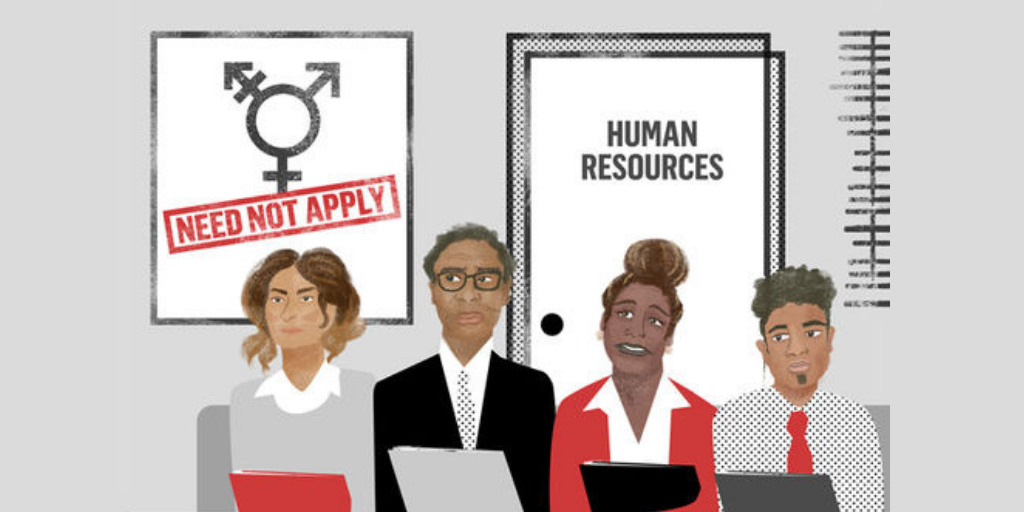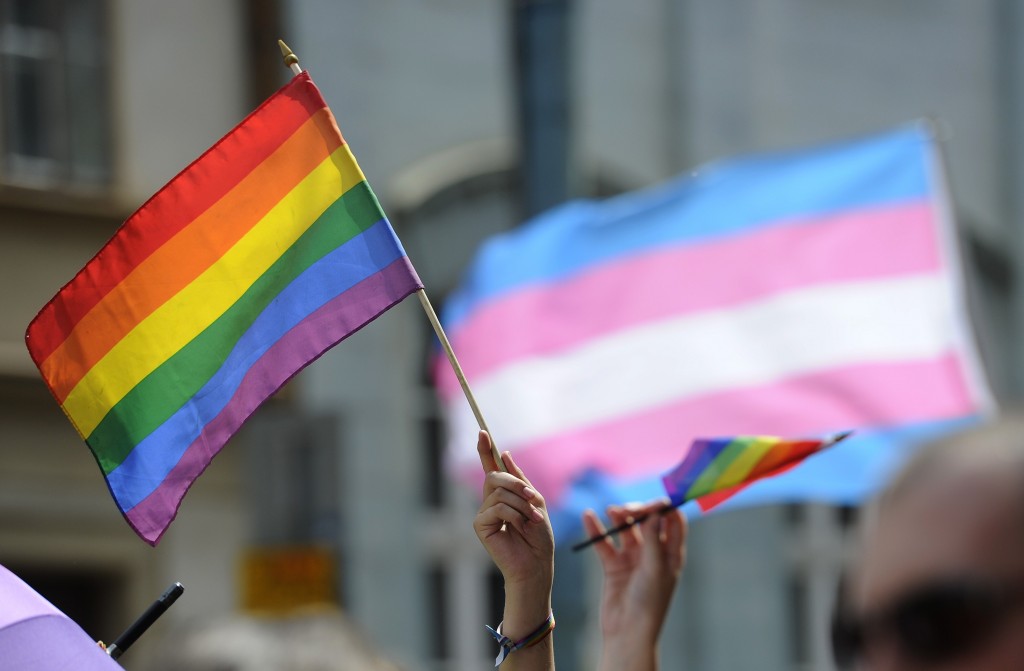SCOTUS Takes up LGBTQ Workers' Rights Under Title VII of the Civil Rights Act
David Nahmias, Law Fellow
Today, the U.S. Supreme Court granted three cert petitions in Altitude Express, Inc. v. Zarda (17-1623), Bostock v. Clayton County (17-1618), and R.G. & G.R. Harris Funeral Homes, Inc. v. E.E.O.C. (18-107). Decisions in these cases will have a significant impact on LGBTQ workers’ rights under federal law. The questions pending before the Court are whether Title VII’s prohibition against discrimination “because of sex” includes discrimination on the basis of sexual orientation AND gender identity. Decisions are expected by June 2020.
A short summary of the cases follows:
Zarda
In Zarda v. Altitude Express, Inc., 883 F.3d 100 (2d Cir. 2018), the Second Circuit, sitting en banc, became the second appellate court in the nation (after the Seventh Circuit in Hively v. Ivy Tech Community College) to find that Title VII’s prohibition of discrimination “because of sex” includes sexual orientation. Donald Zarda was a sky diving instructor whose employer Altitude Express terminated him after he told a female client whom he was strapped onto that he was gay. She later told her boyfriend and accused Zarda of inappropriately touching her (which Zarda denied); the boyfriend related this to Zarda’s supervisor who immediately terminated him. Represented by Gregory Antollino, Zarda filed suit on the basis of his sexual orientation under Title VII and New York state law, but the district court granted partial summary judgment to the defendant on the federal claims. Zarda’s state law discrimination claims survived, but he lost at trial. The Second Circuit panel affirmed the lower court’s Title VII ruling because of previous binding circuit precedent.
Don Zarda left with his partner Bill Moore in happier days. Don tragically passed away in an unrelated base jumping accident before his trial, but his estate continues to seek justice..
The en banc court reversed, overruling two previous cases and holding that sexual orientation discrimination is sex discrimination prohibited by Title VII. Writing for the court, Chief Judge Katzmann first held that sexual orientation discrimination is sex discrimination per se because it is defined by one’s sex, and “sexual orientation is a function of sex.” Under Title VII, taking an adverse employment action based on the gender of the person the employee is attracted to “is a decision motivated, at least in part, by sex.” Second, the court held that sexual orientation discrimination is unlawful discrimination on the basis of sex stereotyping, under Price Waterhouse v. Hopkins, 490 U.S. 228 (1989), because it is rooted in stereotypical assumptions of how a man or woman should behave; quoting the Seventh Circuit in Hively, “same-sex orientation ‘represents the ultimate case of failure to conform’ to gender stereotypes.” Third, the court said that sexual orientation discrimination is associational discrimination because it is “predicated on opposition to romantic association between particular sexes,” analogous to anti-miscegenation laws struck down by the Supreme Court in Loving v. Virginia (1967). The court concluded that “[e]ach of these three perspectives is sufficient to support” its ruling that “sexual orientation discrimination is a form of sex discrimination,” and it remanded the matter to allow the plaintiff to proceed with his federal claim, even though he lost his state claims at trial.
Two other interesting points: Zarda himself tragically passed away in an unrelated base jumping accident before his trial, so his estate has substituted for him as plaintiff. Also, the briefing before the en banc court pitted two sides of the Trump administration against each other. The EEOC had filed a brief that sexual orientation discrimination amounts to prohibited sex discrimination, while the Department of Justice interceded and filed a brief making the opposite argument.
Bostock
Gerald Bostock - fired for belonging to a gay softball team
In Bostock v. Clayton County Board of Commissioners, 723 Fed. App’x 964 (11th Cir. 2018), an Eleventh Circuit panel (Tjoflat, Wilson, and Newsom, JJ.), issued a short per curiam opinion affirming dismissal of Gerald Lynn Bostock’s Title VII sex discrimination complaint. A ten-year employee at the Clayton County (Georgia) Court Appointed Special Advocate with the Juvenile Court, Bostock had joined a gay recreational softball league. According to the district court’s order, certain co-workers and “persons with significant influence on Clayton County’s decision-making” ridiculed and disparaged Bostock’s participation in the league, and he was terminated three months later after the county conducted an internal audit of his program. In his pro se complaint, Bostock alleged Title VII sex discrimination on the basis of his sexual orientation, but the court dismissed the complaint.
Bostock appealed with representation from Buckley Beal LLP, but the Eleventh Circuit panel affirmed, citing its recent decision in Evans v. Georgia Regional Hospital, 850 F.3d 1248 (11th Cir. 2017) and the Fifth Circuit’s Blum v. Gulf Oil Corp., 597 F.2d 936 (5th Cir. 1979) (decided before the Eleventh split from the Fifth Circuit), which both held that Title VII did not prohibit sexual orientation discrimination. Evans rendered a recent circuit split between the Eleventh and the Second/Seventh Circuits on the question, but notably the Supreme Court denied cert in Evans.
Harris Funeral Home
In E.E.O.C. v. R.G. & G.R. Harris Funeral Homes, Inc., 884 F.3d 560 (2018), the Sixth Circuit held that Title VII’s prohibition on sex discrimination includes discrimination on the basis of transgender status. Aimee Stephens, the real party in interest, is a transgender woman who worked as a funeral director and was required to abide by a gender-specific dress code. After almost six years of employment, Stephens transitioned at work and requested to wear the attire that corresponded with her gender identity. Her supervisor fired her, stating that Stephens’s request violated his religious beliefs. After Stephens filed an EEOC charge, the EEOC took her case and initiated a Title VII action against the employer.
Aimee Stephens, fired for requesting to wear the attire that corresponded with her gender identity.
The district court granted summary judgment to the employer after finding that, although the EEOC had sufficiently demonstrated a Title VII violation (based on binding Sixth Circuit precedent holding that transgender status discrimination is unlawful sex discrimination), the employer had a viable affirmative defense under the Religious Freedom Restoration Act (RFRA). The EEOC appealed, shortly before the 2016 presidential election—in January 2017, Stephens and the ACLU intervened in the matter, fearing that the change in administration would mean a less vigorous representation by the Commission.
On appeal, the Sixth Circuit panel (Moore, White, and Donald, JJ.) issued a strong opinion in Stephen’s favor. The panel first reiterated its previous holding in Smith v. City of Salem, 378 F.3d 566 (6th Cir. 2004), that discrimination on the basis of transgender status is unlawful sex-stereotyping discrimination under Price Waterhouse v. Hopkins, 490 U.S. 228 (1989). Indeed, the employer “engaged in improper sex stereotyping when it fired Stephens for wishing to appear or behave in a manner that contradicts the Funeral Home’s perception of how she should appear or behave based on her sex.” Second, the panel held for the first time that discrimination on the basis of transgender and transitioning status is per se sex discrimination. The court held, “it is analytically impossible to fire an employee based on that employee’s status as a transgender person without being motivated, at least in part, by the employee’s sex,” and that “[t]here is no way to disaggregate discrimination on the basis of transgender status from discrimination on the basis of gender non-conformity.” The panel also rejected the employer’s religious-based affirmative defenses under RFRA and the “ministerial exception” to Title VII.
The Funeral Home, represented by the rightwing Alliance Defending Freedom, appealed. In granting cert today, the Supreme Court ordered the following question to be argued: "whether Title VII prohibits discrimination against transgender people based on (1) their status as transgender or (2) sex stereotyping under Price Waterhouse v. Hopkins.” An answer to second issue will likely have significant ripple effects for all civil rights advocates, since sex-stereotyping is now deeply ingrained as a theory of sex discrimination.
Moreover, unlike in the sexual orientation where only two appellate courts have ruled affirmatively that Title VII protects gay, lesbian and bisexual employee, at least five circuits have squarely held that transgender status discrimination is unlawful sex discrimination; there is no sharp circuit split to date on this issue.
By taking up all three cases the Supreme Court has decided to take on one of the most critical issues facing the LGBTQ community: whether federal law allows people to express their identity fully without reprisal or harassment. And at least two more cases on related issues are still pending cert decisions: Klein v. Oregon Bureau of Labor & Industries, on whether business owners can seek religious exemptions from state public accommodations laws protecting LGBTQ people—the matter left unresolved by last year’s Masterpiece Cakeshop case—and Doe v. Boyertown Area School District, on issues related to whether Title IX protects transgender students. 2019 could shape up to be one of the most momentous years for the LGBTQ community.












